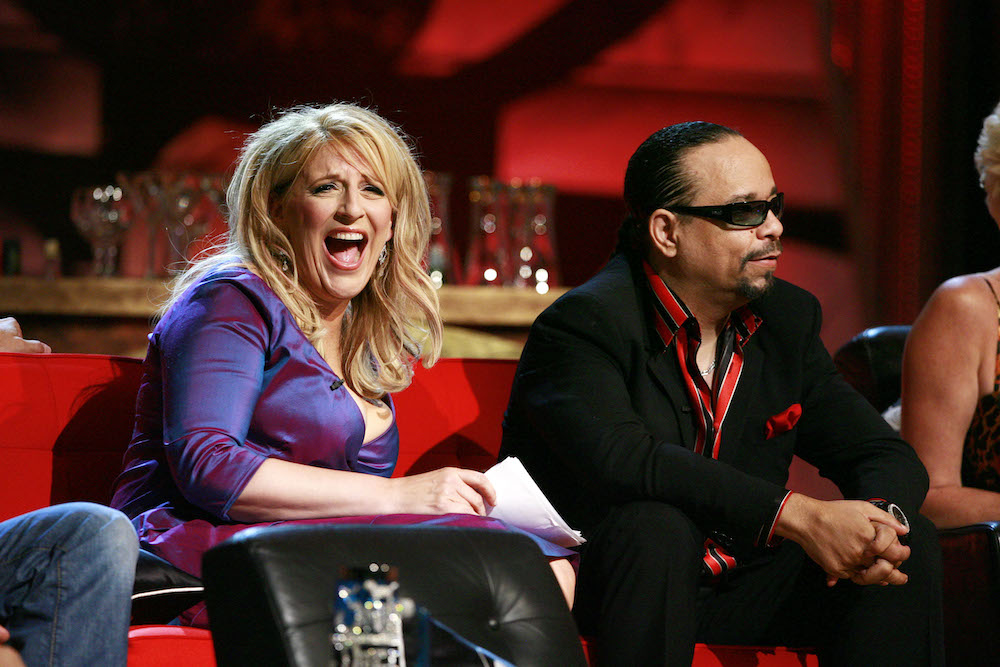Public Intellectual
Popular articles cited in or consulted for

Popular Articles
Jokes can be a medium for testing and challenging social norms, but they can also reinforce prejudices. Krefting shared that she doesn’t believe we must steer clear of subjects as a culture. Instead, we have to be thoughtful and conscientious about how we approach those topics. Comics such as Joe Rogan, Krefting said, “have built an entire empire on celebrating white masculinity and making fun of the weak and dispossessed.”

I got one for you: It’s 1990, and there’s this group of 27 people who go to a six-week law enforcement leadership course in Ottawa. The first day, the newly elected class president announces that at the start of class each day, he wants someone to tell a joke.
On AMC’s “The Walking Dead,” human survivors of a zombie apocalypse are forced to reconsider their niche in the food chain.
“Everything is food for something else,” Carl, a preteen protagonist on the horror series, surmises.
In the U.S., stand-ups have a history of joining other cultural arbitrators to push social changes, said Krefting, who is a part-time stand-up herself.
The civil rights movement, for example, “was aided and abetted by stand-up comedy and comedians, specifically [those] ... who had established a presence with black audiences but were also welcomed by white audiences,” she said.
"Comedy is so unfeminine," says comedian Judy Gold. "It's so powerful. I mean if you think about it, it's you and a microphone and a bunch of people listening to you."
Gold thinks society is still not accustomed to women having that power. "For a woman, it's like, 'That's interesting. Keep it to yourself, shut up,'" she says.
PODCASTS
The Specials – Hannah Gadsby’s Nanette Good One: A Podcast About Jokes
Do you ever think to yourself, "hmmm, I wonder what Nanette discourse sounds like four years post-Nanette?" Well then you're in luck! Because today's episode is all about Nanette; Nanette then, Nanette now, Nanette forever!!! Listen in as hosts Jesse David Fox, Kathryn VanArendonk, producer Jessamine Molli, and guest (Skidmore College Associate Professor and Comedy Expert) Beck Krefting recount their first time watching Nanette, how Hannah Gadsby ended up with the Biggest Special of All Time, and more! And most important of all, get the group's final verdict on the ever present question: Is Nanette stand-up or a TED Talk?
WHY WORK EPISODE 9- BECK KREFTING
Skidmore College's professor of American Studies describes her experiences.
WHY WORK PODCAST
Beck Krefting on the Apocalypse: Radio Interview on WOOC 105.3’s ‘The Year in Media’ Segment
In this interview with WOOC correspondent Aaron Pedinotti, Beck Krefting, Chair of the American Studies Department at Skidmore College, discusses her course on post-apocalyptic film and television. Krefting examines why post-apocalyptic narratives are so popular today, and the difference between the apocalyptic, post-apocalyptic, and dystopian genres.
Media Sanctuary
Laughing Matters: Comedy & Accountability
A #BHeard Town Hall
If comedy is all about timing, are we in a golden era or its darkest hour? What's offensive to one person might be hilarious to another. Does freedom of expression mean freedom from repercussions? Is "cancel culture" an example of censorship, or a way to hold people accountable? In this #BHeard Town Hall, we’ll explore the ways comedy can perpetuate systems of oppression, push for social change, or just make us laugh.
Moderated by BRIC TV Managing Editor Brian Vines.
INVITED PANEL WITH UCLA AND ZOCALO PUBLIC
Before participating in the Zócalo/UCLA panel “Has Political Correctness Really Killed Humor?,” Rebecca Krefting talked in the Zócalo green room about the offensive comedy she enjoys—and the comedy that truly offends her.
You can be funny without being racist, sexist, or a bully.
And being "PC" might even make comedians more creative.
The post Star
“It doesn’t take courage. All it takes is standing up for what you believe in.”
— Jesse Lopez de la Cruz
There are many who believe that within every woman there lies an inner knowing, an innate passion, a wild woman waiting for the right time to step forth. And for centuries, despite the odds, women have fought against oppression and injustice....
Editorials
Comedians have always had one simple guiding rule: be funny. That is, some critics say, until now.

We're now witnessing a debate about whether there's a place for political correctness in comedy — that profession that profits from poking fun at others, playing with taboo and pushing the proverbial envelope. From Dennis Miller to Jim Norton to Daniel Lawrence Whitney (a.k.a. Larry the Cable Guy), comics are bemoaning the infringement on their freedom of speech wrought by overly-sensitive listeners



